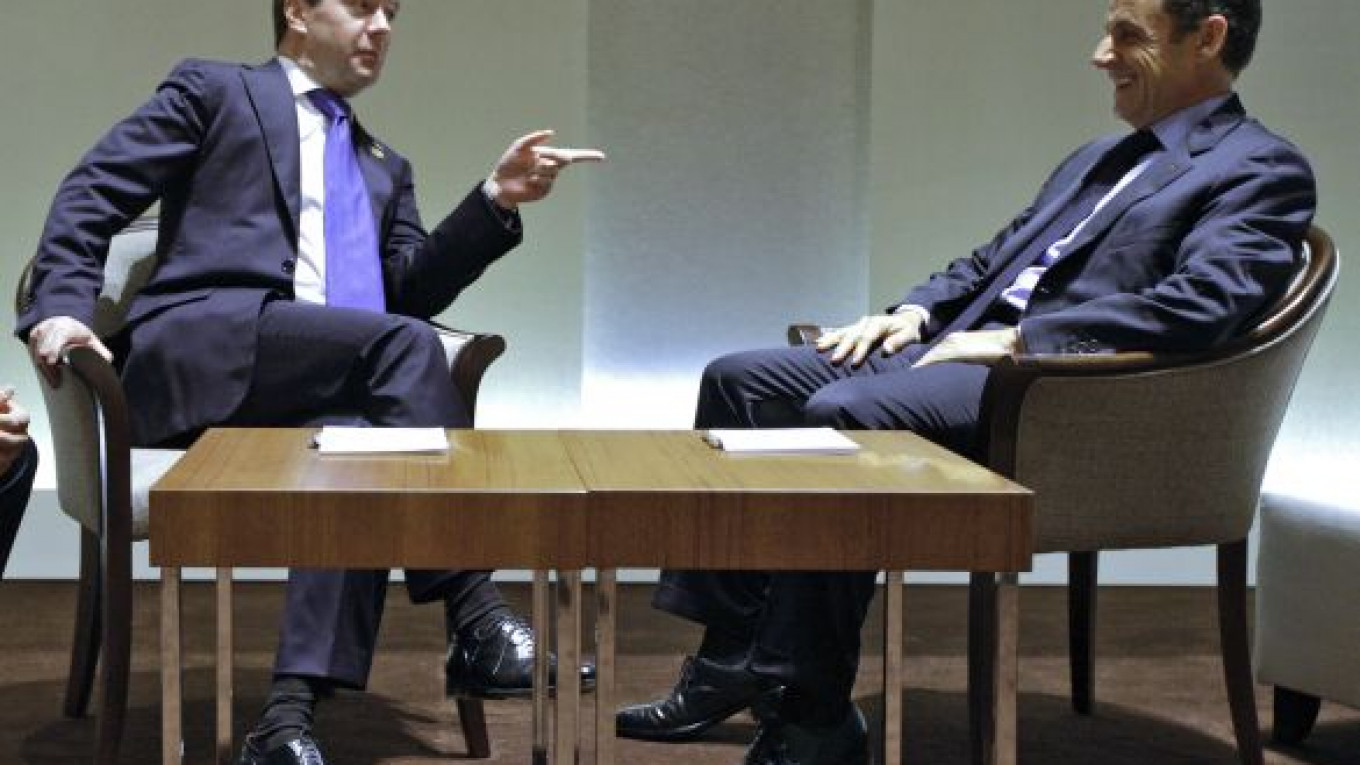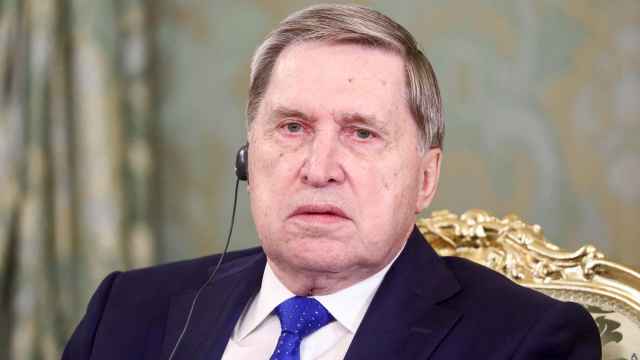President Dmitry Medvedev said Friday that the threat of a global currency war had been “significantly reduced” after the Group of 20 summit in Seoul.
“We have cause to regard the future with more optimism,” Medvedev told reporters in the South Korean capital.
Medvedev said that as the dangers facing reserve currencies and other currencies that play a major role on the global market have subsided, the state of the ruble depends on the situation on Russia’s market.
“The stability of our currency and its future condition depend on us,” Medvedev said. “We’ve spent a lot of time to make the ruble a freely convertible currency. Our new task is for the ruble to become a reserve currency.”
Medvedev also said South Africa had "applied" to join the four-member BRIC grouping of fast-growing emerging markets.
South Africa is the world's 31st-largest economy, according to World Bank data for 2009, and is less than a quarter the size of the smallest BRIC economy, Russia, in the informal grouping that also includes Brazil, India and China.
"There are a number of requests to join BRIC, in particular an application by the South African republic," Medvedev told a news conference, saying other members agreed.
Some economists have already dubbed fast-growing Indonesia as the next "BRIC," a term coined in 2001 by Jim O'Neill, chairman of Goldman Sachs Asset Management.
When contacted for his view on whether South Africa should be included, O'Neill issued a terse reply: "No."
South Africa's economy is projected by its government to grow just 3 percent this year, hardly the blistering pace seen in other BRIC countries.
The BRIC countries have sought greater clout for their grouping, holding a summit in Russia in 2009.
Some investors make asset allocations based on the BRIC classification, and all of the countries that currently make up the grouping have seen their global financial clout increase substantially in recent years.
(Bloomberg, Reuters)
Russia said Friday that it was concerned about the overall instability in Europe amid spiraling bond yields in Ireland and speculation that it may need a bailout.
Arkady Dvorkovich, an economic aide to President Dmitry Medvedev, made the comment in Seoul where Group of 20 leaders discussed Europe’s debt woes.
Russia won’t invest in Irish or Portuguese assets in the near future, Dvorkovich said. The head of the International Monetary Fund mentioned Ireland and Portugal “as the ones susceptible to most risk now in Europe,” he also said.
“As far as I know, Ireland and Portugal are now in the list of countries in which our sovereign assets won’t be invested in the near future,” Dvorkovich said.
A Message from The Moscow Times:
Dear readers,
We are facing unprecedented challenges. Russia's Prosecutor General's Office has designated The Moscow Times as an "undesirable" organization, criminalizing our work and putting our staff at risk of prosecution. This follows our earlier unjust labeling as a "foreign agent."
These actions are direct attempts to silence independent journalism in Russia. The authorities claim our work "discredits the decisions of the Russian leadership." We see things differently: we strive to provide accurate, unbiased reporting on Russia.
We, the journalists of The Moscow Times, refuse to be silenced. But to continue our work, we need your help.
Your support, no matter how small, makes a world of difference. If you can, please support us monthly starting from just $2. It's quick to set up, and every contribution makes a significant impact.
By supporting The Moscow Times, you're defending open, independent journalism in the face of repression. Thank you for standing with us.
Remind me later.






